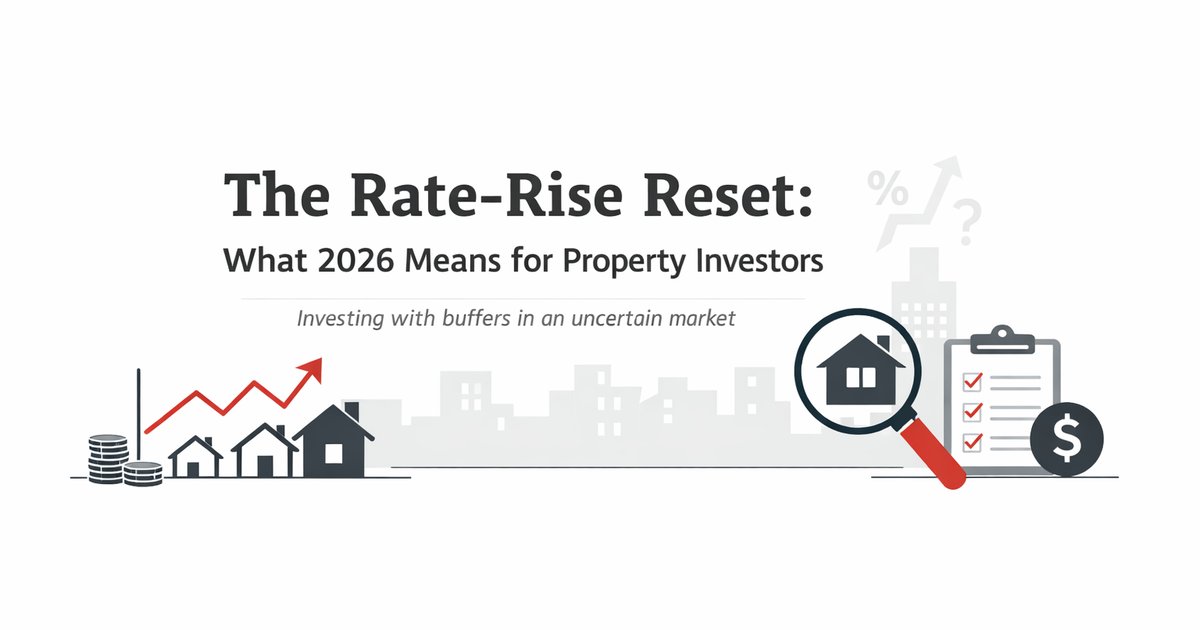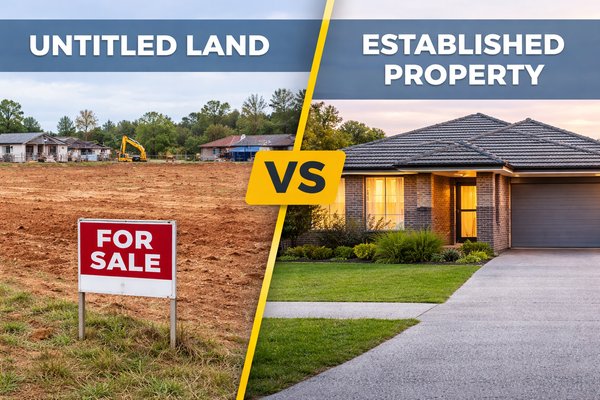Making an offer on a property can feel like the most intense part of the buying process — especially if you're aiming for a good deal. Whether you're purchasing your first home or trying to secure an off-market opportunity, knowing how to prepare, present, and position your offer can be the difference between winning the property and walking away empty-handed.
This article breaks down what makes an offer strong, how to avoid common pitfalls, and why acting fast (with the right conditions) can help you secure a property without paying more than necessary.
Before You Put It in Writing
The offer doesn’t start with a contract. It starts with asking the right questions. Smart buyers always begin by negotiating verbally with the selling agent to discuss the seller’s needs and to get a sense of what it will take to close the deal.
Ask questions like:
-
“What would it take to buy the property today?”
-
“Is the seller in a hurry to move?”
-
“Do they need a shorter settlement?”
This shows you’re not wasting anyone’s time and that you understand the seller has goals too.
Know the Seller’s Situation
Understanding the seller’s position helps you tailor your offer. Some sellers are motivated by price. Others want fast settlement or are looking to avoid drawn-out conditions. Tailoring your offer around their needs — while still protecting your interests — makes it more appealing.
Avoid overly complex requests during these early conversations. Keep your conditions and expectations simple. You can address chattels or early access later, after the initial terms are accepted.
Forget the Letter of Offer — Go Straight to Contract
In most cases, a letter of offer is legally meaningless. Agents may ask for one, but it carries no weight. If you want to be taken seriously, submit a completed contract of sale with your offer terms clearly outlined. It shows commitment and reduces time lost in back-and-forth.
In competitive markets or off-market deals, this can be the difference between being noticed and being ignored.
Understand State-Based Contract Rules
Each Australian state has different processes and rules. For example:
-
In Queensland, buyers can often walk away during finance or building and pest clauses with minimal cost.
-
In Western Australia, sellers can fix problems identified in a building report rather than allowing buyers to terminate.
Knowing these details will help you draft conditions that give you flexibility without making the offer look risky or complicated.
Step-by-Step: What to Include in the Contract
Buyer Details
Make sure your name (or the entity purchasing the property) is listed correctly, especially if you’re buying in a trust or company name. Also include your solicitor’s details to keep things smooth.
Property Description
Check the title details and lot numbers — don’t rely solely on the agent to get this right. Mistakes here can delay everything.
Price
Always write in the agreed price. If you’ve negotiated $600,000, don’t go changing it to $595,000 at the last minute. That can break trust and kill the deal.
Deposit
In Queensland, an initial deposit of $5,000 is common and generally accepted. You can adjust it if needed. An additional deposit can be listed as payable once the contract becomes unconditional.
Finance Clause
Instead of specifying a lender or a set amount, use the term “sufficient to complete.” This gives you flexibility. A 14-day finance clause is standard in most cases.
Building and Pest
Also typically set at 14 days. You can terminate the contract if the inspection uncovers significant issues. In some states, the seller has a chance to fix defects instead.
Special Conditions
Keep this blank unless absolutely necessary. The more conditions you add here, the more complicated your offer appears. If you truly need additional terms (e.g., development approvals or zoning conditions), make sure they’re precise and justifiable.
Settlement Period
Forty-two days is standard. But if the seller wants a faster sale and you can accommodate it, offering a 30-day settlement can make your offer stand out.
The Power of Speed and Certainty
In a fast-moving property market, speed shows seriousness. Submitting a signed contract right after a verbal agreement makes agents take you seriously. If you can also transfer a holding deposit immediately, even better.
Agents are more likely to recommend your offer to the seller when you show up prepared and confident. That doesn’t mean being pushy — it means being decisive.
Protect Yourself While Keeping the Offer Simple
Many buyers think more conditions equal more protection. In reality, standard finance and building and pest clauses offer plenty of flexibility. Overloading your offer with unnecessary extras can make it look risky or complicated.
Let your solicitor or conveyancer guide you, but focus on clean, confident presentation.
Summary: How to Submit a Winning Offer
-
Talk to the agent first — ask what it would take to buy today
-
Keep it simple: submit a full contract, not a letter of offer
-
Use standard clauses (finance, building/pest) for flexibility
-
Don’t change price after agreeing verbally — it ruins trust
-
Act quickly: fill out the contract while on the phone if needed
-
Consider offering to pay deposit immediately to show commitment
Final Thoughts
Making a property offer doesn’t need to be overwhelming. It’s about knowing the rules, asking the right questions, and moving quickly when the opportunity is there. By preparing your offer correctly, acting decisively, and building rapport with the agent, you’ll give yourself the best shot at securing a great deal.
If you’re looking for help understanding the buying process — or want to find better investment opportunities — AbodeFinder can help. We use suburb-level data and generative AI to spot where real opportunities lie.
Want to know where to find your next investment property or how to write a winning offer?
At AbodeFinder, we help buyers and investors:
-
Discover undervalued suburbs using real-time data
-
Build strategies that match their goals and risk appetite
-
Submit offers with confidence
Visit abodefinder.com.au to book a free discovery session and take the guesswork out of property buying.


















